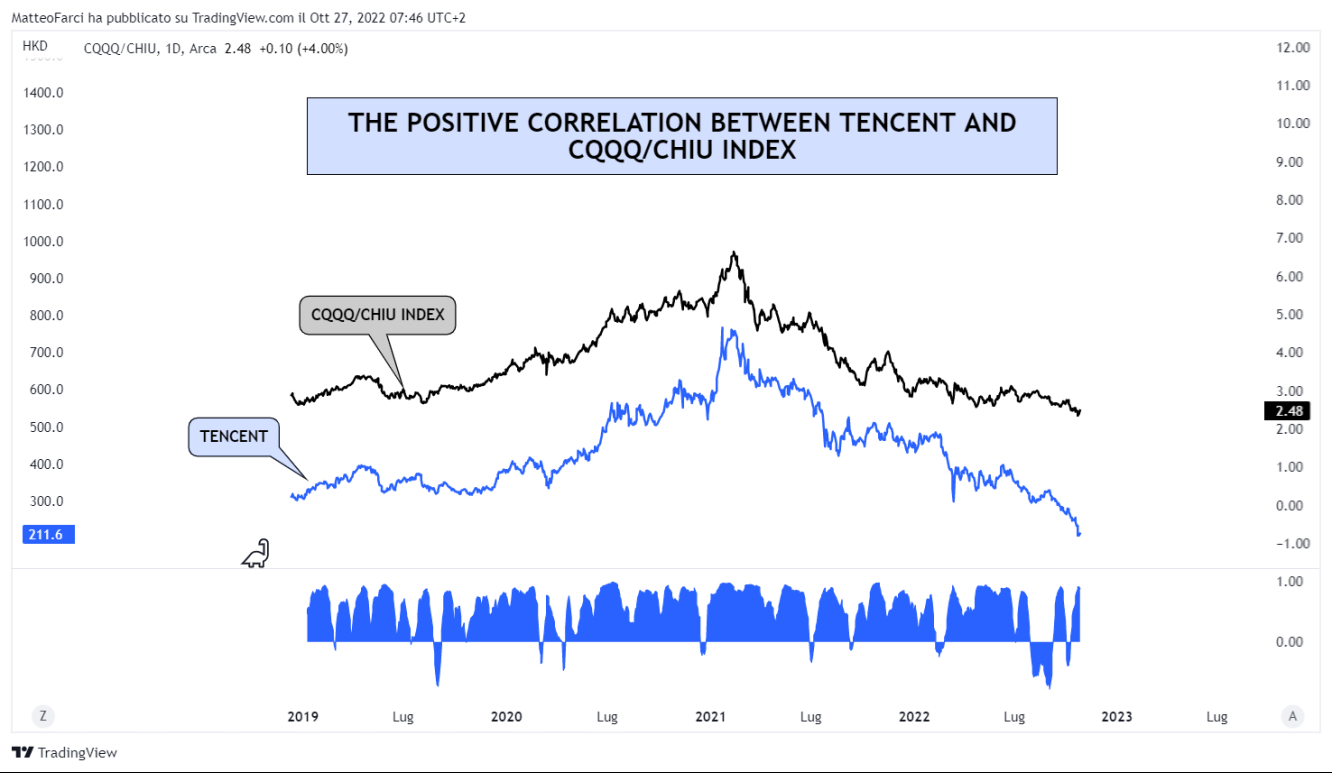Nike stock plunges 10% on margin fears despite Q2 earnings beat
On Oct. 24, the Hang Seng lost 6.4 percentage points, falling to 15180 HKD.
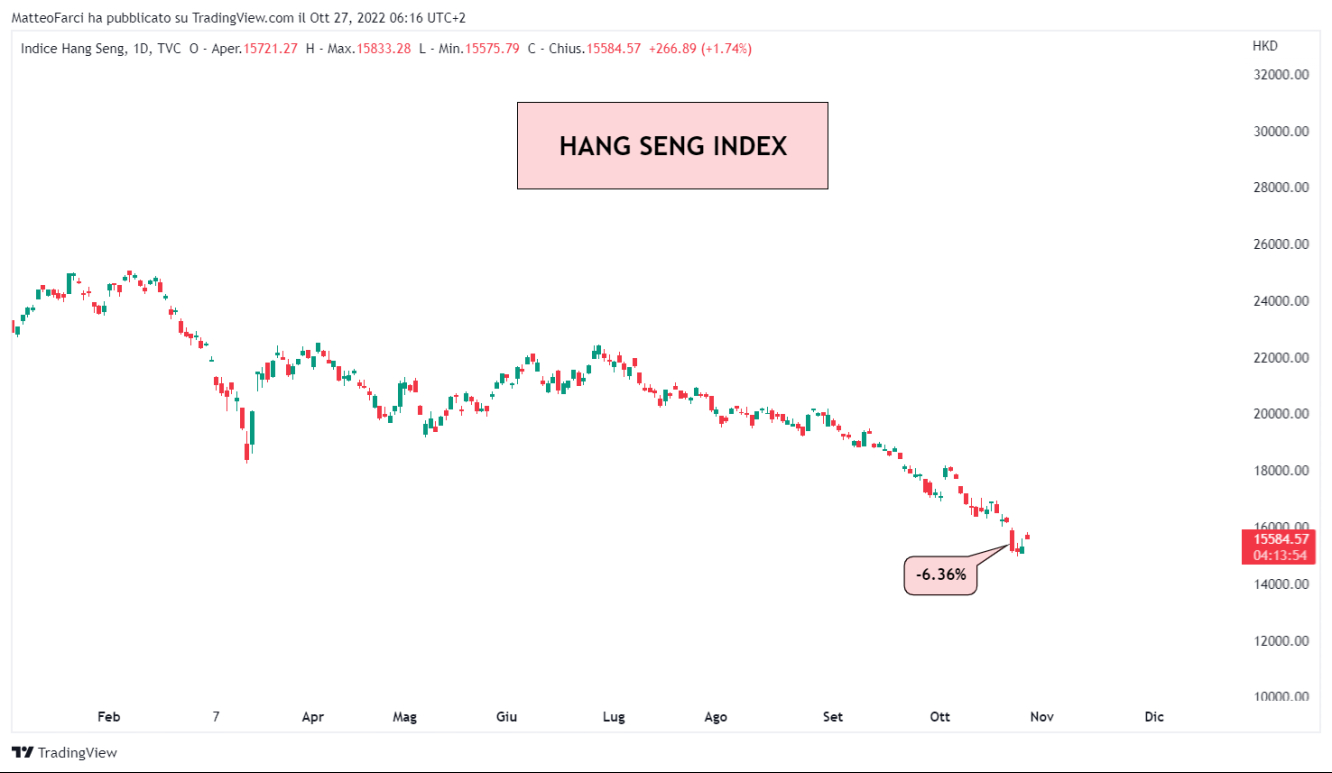
These are the same values since 2009.
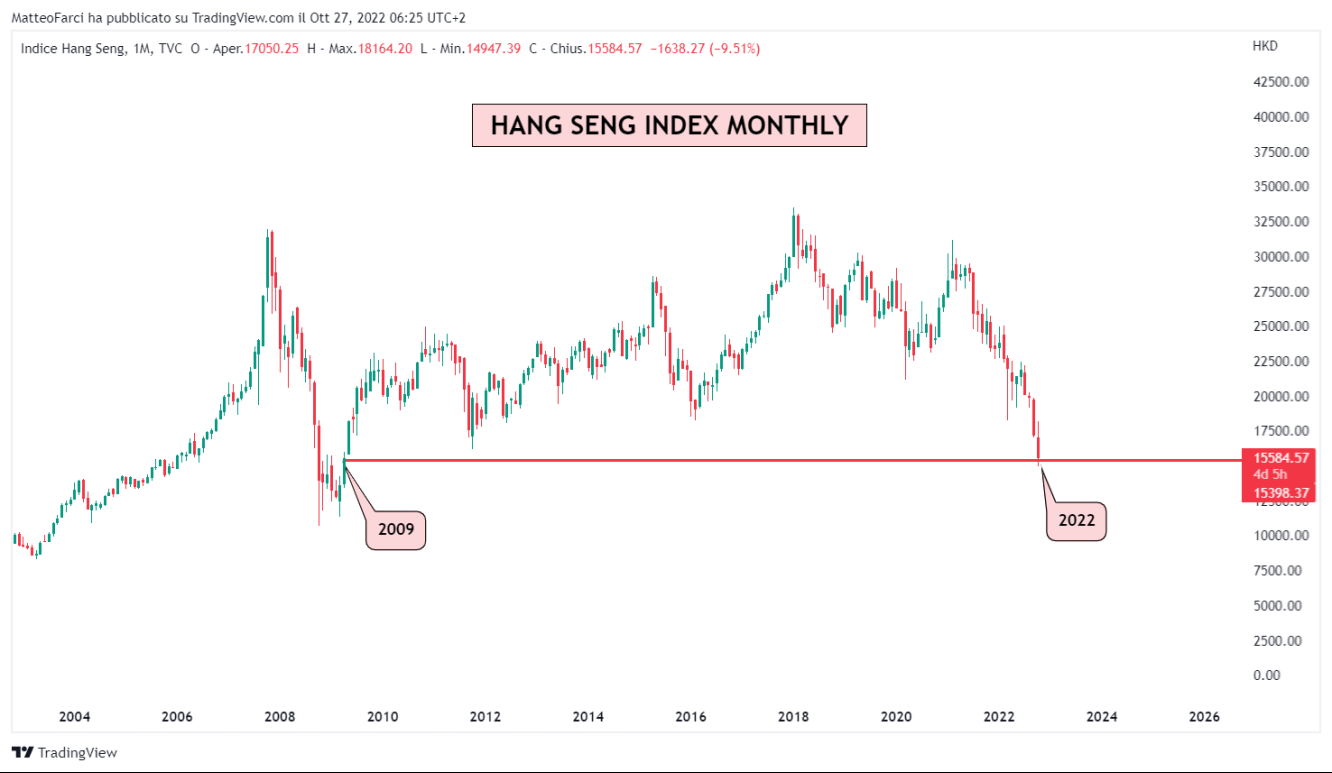
The reasons for the collapse of the index are different.
Election of Xi Jinping as President of the People's Republic of China, secretary general, and Chief of the armed forces; he will continue with his zero covid policy. These political moves hurt the economy.
GDP grew less than expected. Furthermore, his policy will likely continue to crack down on large Chinese companies. Some of the biggest companies' stocks fell on Oct. 24. Tencent lost 11.43%.
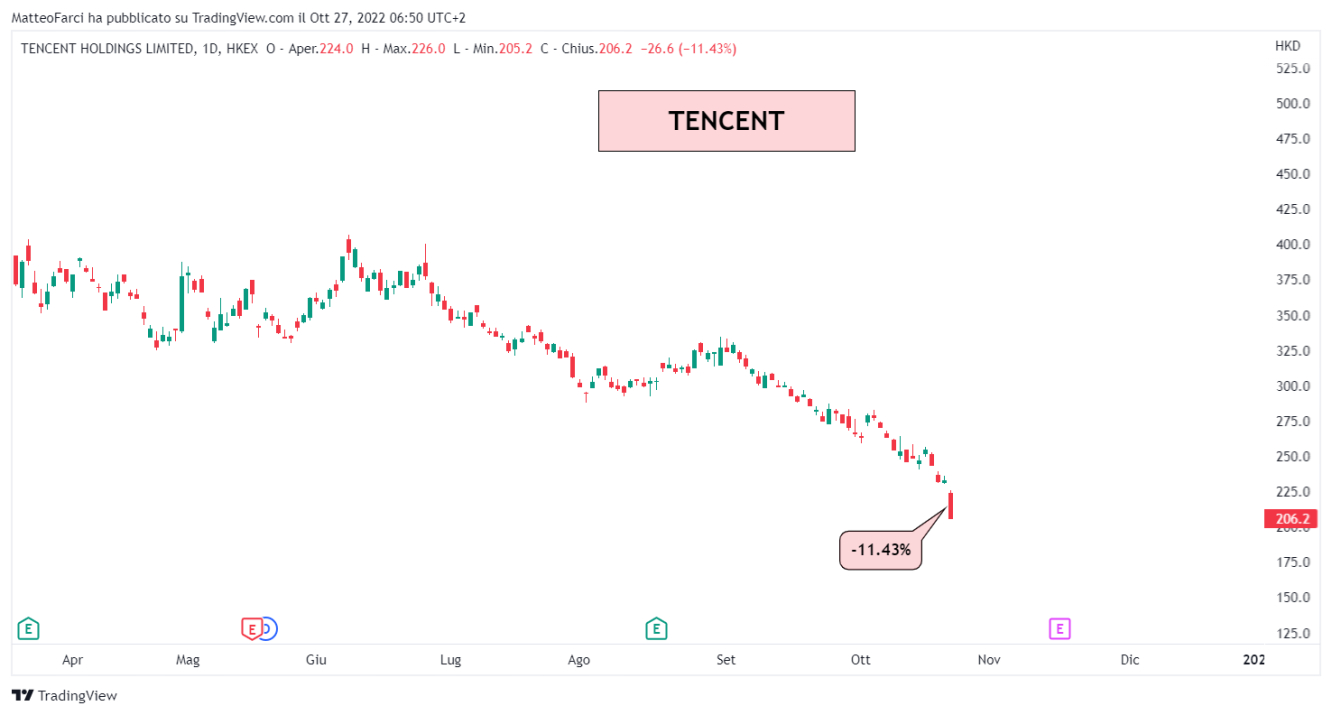
And Alibaba (NYSE:BABA) lost 11.42% as well.
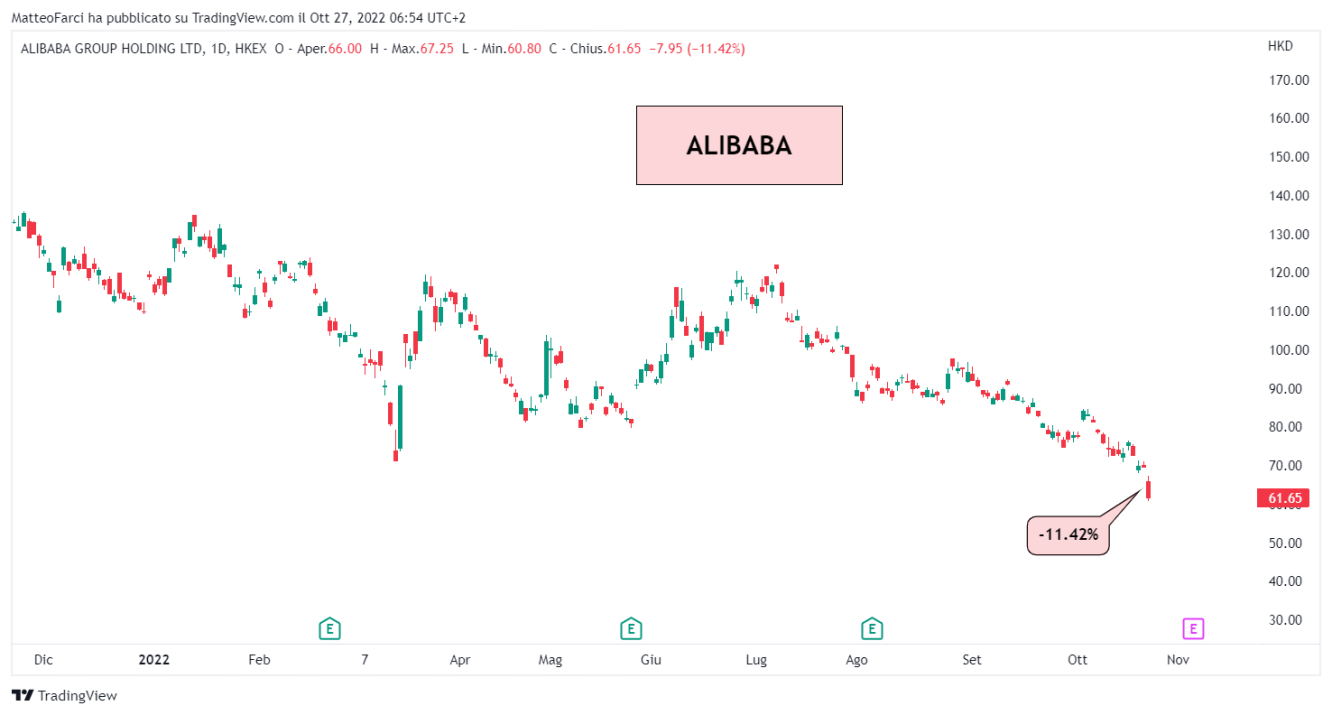
When will there be a turnaround for them?
It is necessary to introduce two risk indices using three ETFs: Invesco China Technology ETF (NYSE:CQQQ), Global X MSCI China Utilities ETF (NYSE:CHIU) and Global X MSCI China Consumer Disc ETF (NYSE:CHIQ).
The risk indices are CQQQ/CHIU and CHIQ/CHIU. Why?
There is a positive correlation between Hang Seng and the risk indices.
When Hang Seng rises, the Chinese technology sector outperforms the utilities sector.
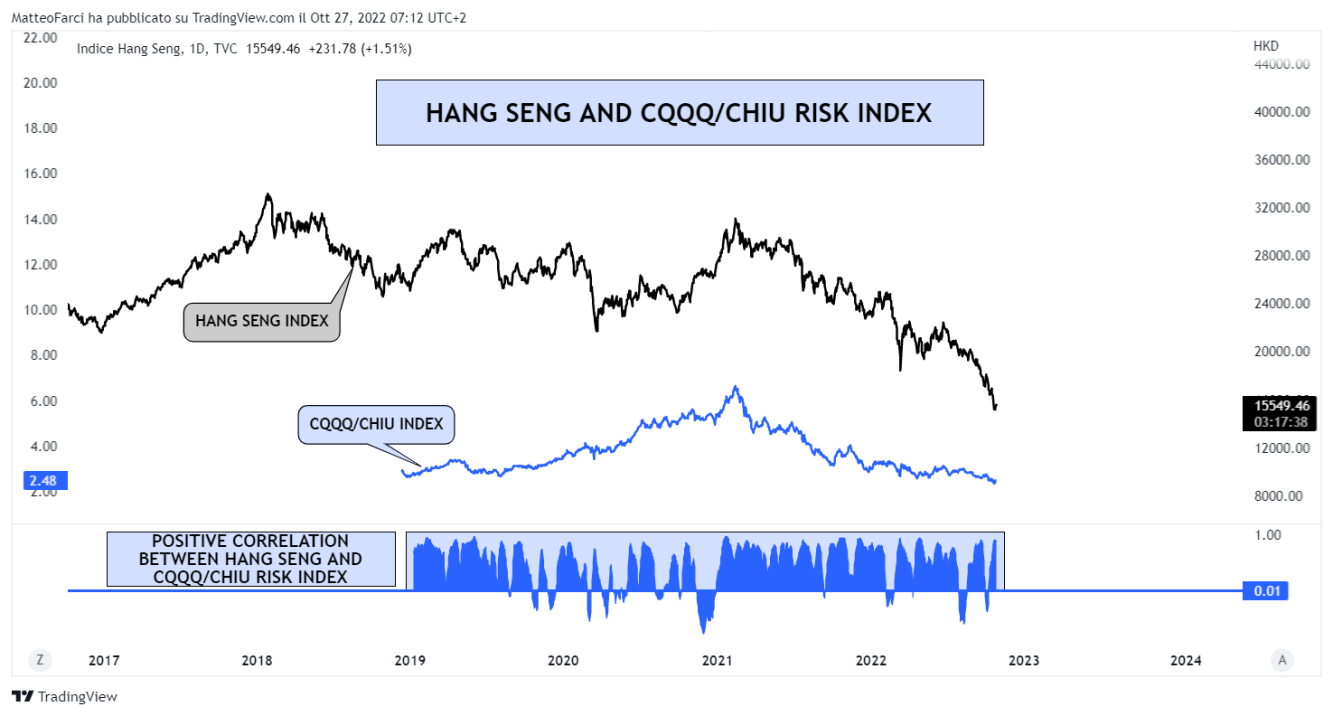
Instead, Hang Seng loses when the utilities sector outperforms the tech sector. Same situation if we use the other risk index:
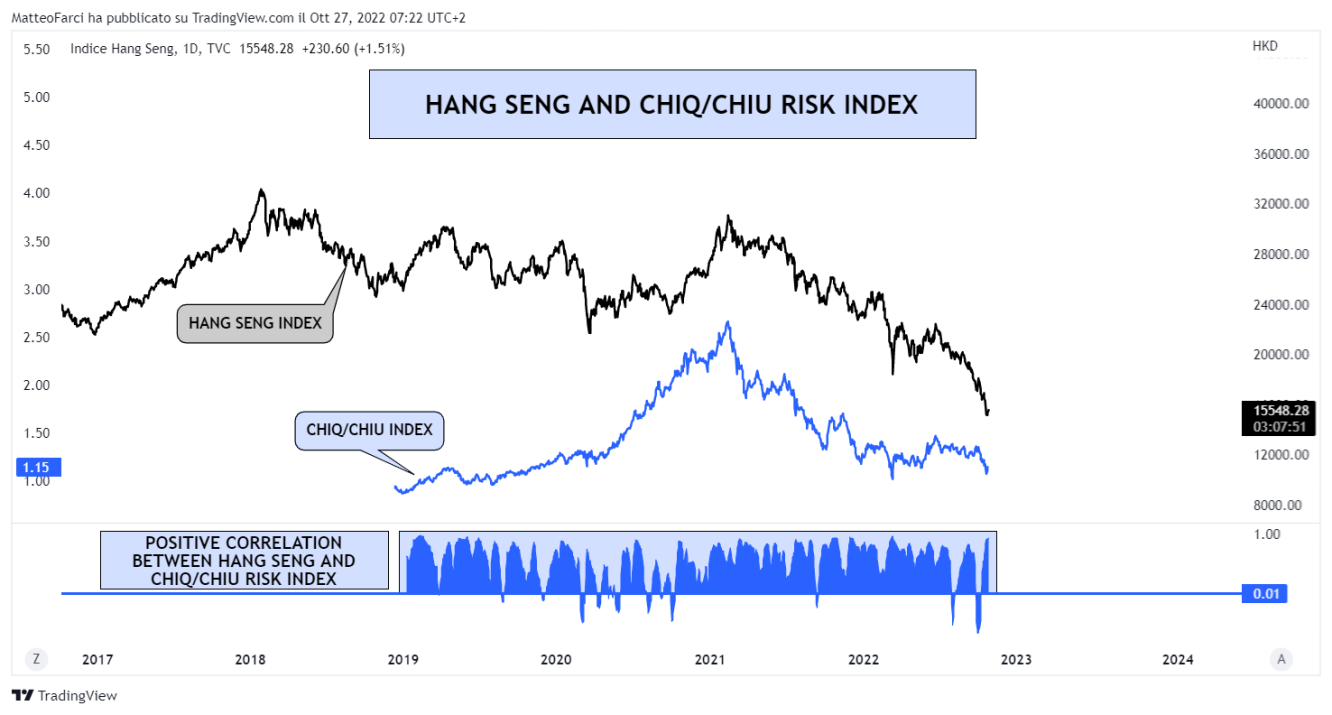
When Hang Seng rises, the consumer discretionary Chinese sector outperforms the utilities sector; when the utilities sector outperforms the consumer discretionary sector, Hang Seng loses.
Why does this happen?
A stock index is pushed higher by volatile companies such as those in the tech and consumer discretionary sectors; instead, when a stock index falls, the utilities sector outperforms the other sectors, in fact:
CHIU is a defensive sector. CQQQ and CHIQ are aggressive sectors.
Investors buy aggressive sectors when they are positive and defensive sectors when they don't want to risk. So what can we say? CQQQ / CHIU and CHIQ / CHIU are two excellent risk on / risk off indices.
Tencent belongs to the tech sector and Alibaba to the discretionary goods sector. What correlation do companies have with risk indices? Positive:
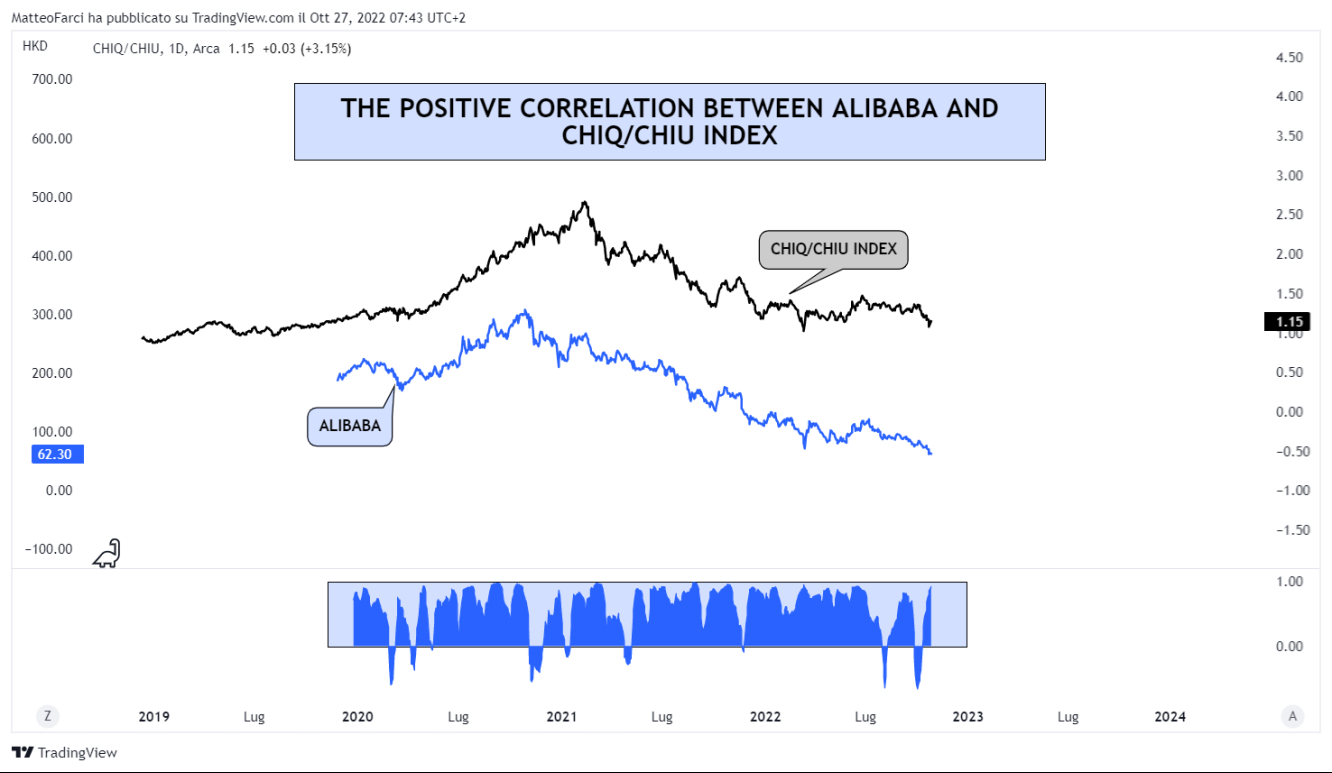
The two big companies have been lost recently because the climate is risk-off. They will bounce back when the risk indices reverse their trends.
